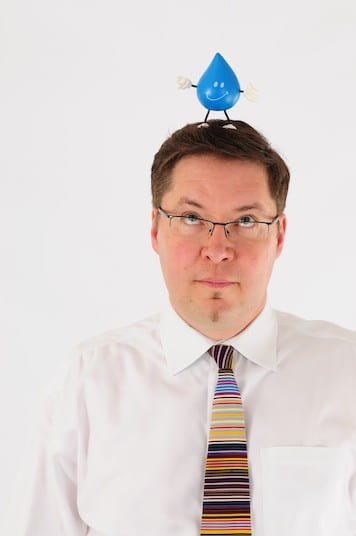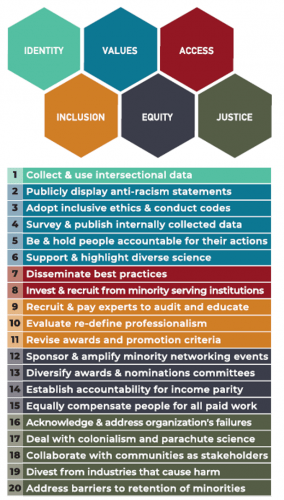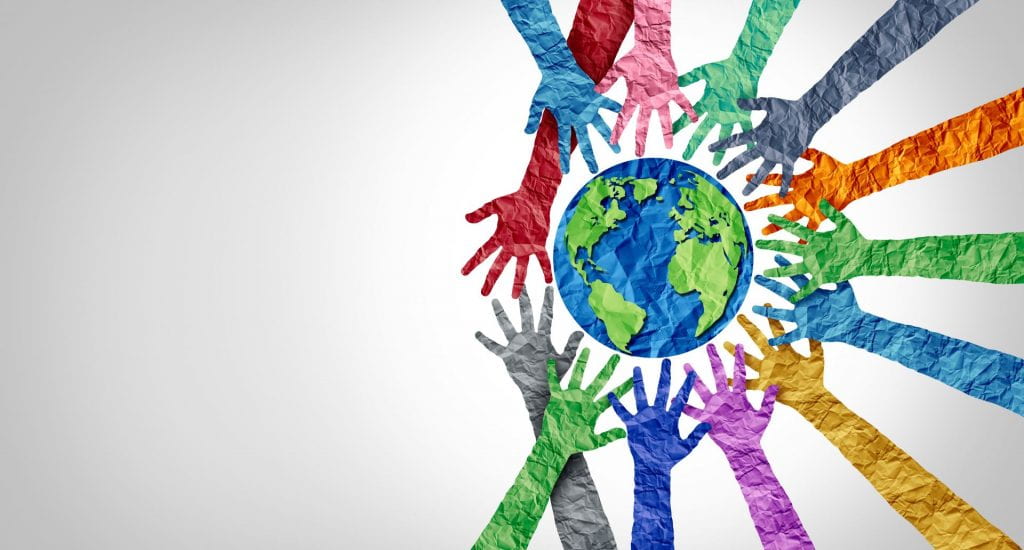With 38 public universities and 35 private colleges and universities in the state and many more across the country (and the world) interested in Texas, there’s a great deal of academic scholarship focused on water in the Lone Star State. In this column, I provide brief summaries to several recent academic publications on water in Texas.

Let’s start thinking about water!
An Actionable Anti-racism Plan For Geoscience Organizations
I’ve had this paper in the hopper for a while, waiting for the courage to write about it, in large part due to the controversy over Critical Race Theory but also — and perhaps primarily — because I am an old(ish), white, straight male fearful of saying (or writing) the wrong thing. But, as Dr. Ibram X. Kendi notes in his book How to be an Anti-Racist, it’s not enough to be non-racist — you have to be anti-racist. And, as Dr. Robin DiAngelo writes in her book White Fragility, you have to be purposeful about your actions.
I don’t quite get the controversy over Critical Race Theory. This theory has been around since the late 1980s and holds that (1) race is a social construct, and (2) racism is embedded into legal systems and policies. Race is, indeed, a social construct, and racism is embedded into legal systems and policies. Slavery and Jim Crow Laws are extreme examples of racism in legal systems and policies. Although those systems and policies — as originally written — are thankfully gone, echoes and impacts of those systems and policies still exist today as evidenced by the lack of diversity in many fields.
Sometimes the legacy of racism still exists in ways we don’t recognize. For example, when I took hiring training at Texas State University, the trainer cautioned professors — including those of color — against simply using their existing networks (such as their old departments) for recruitment because those networks may not be diverse due to the lingering legacy of past, overt racism. Institutional and structural racism still exist — as does overt racism. And interview panels need to focus on hiring qualified people, not people that will “fit the culture” or “be a good member of the team,” code words that can hide overt racism at the worst or unwittingly perpetuate structural racism at the best.

For various reasons — including racism — the geosciences are among the least diverse professions in the engineering and sciences realm. The authors of this paper identify 20 actions organized around six constructs — identity, values, access, inclusion, equity, and justice — for creating anti-racist geoscience organizations:
- Identity: Collecting data on the experiences of historically minoritized and excluded social groups and using these data to engage in action-oriented conversations
- Values: Publicly sharing an organization’s antidiscrimination statements, including those statements in codes of ethics and conduct; assessing and sharing organizational demographic data; showing how inaction will be held accountable; and focusing on increasing diversity
- Access: Requiring the implementation of best practices to make all programs accessible; incorporating antiracism into all relevant spaces; and investing in historically Black colleges and universities, tribal colleges and universities, and Hispanic-serving institutions
- Inclusion: Training, recognizing how certain professional expectations can be exclusionary, and revising criteria for awards to be more inclusive
- Equity: Sponsoring events for people of color at large gatherings, revising recruiting and selection criteria for diversification, and addressing pay inequalities
- Justice: Acknowledging an organization’s past failures; recognizing geoscience’s role in environmental injustice; and actively seeking the involvement of disadvantaged communities in stakeholder processes
Although written specifically for geosciences, these actions and constructs would apply to any organization or field, perhaps with modifications to reflect unique operating spaces.
There are some other specific actions that should be considered in addition to the 20 presented by the authors, such as hiring and mentoring interns/students from disadvantaged communities. Richard Reeves, in his book Dream Hoarders: How the American Upper Middle Class Is Leaving Everyone Else in the Dust, Why That Is a Problem, and What to Do About It, notes how unpaid internships, as well as connections, unfairly give the children of a predominantly non-diverse upper middle class an advantage over children who don’t have parents that have those connections and means of support. This is a way that past inequalities are innocuously carried into the future.
Supporting endowments and scholarships for students from disadvantaged communities is another action. And this support can start early: the University of Texas at Austin Jackson School of Geosciences has had amazing success with its GeoFORCE program for its K-12 outreach program. But there is so much more to do. This paper will help you do more.
Citation
Ali, H.N., Sheffield, S.L., Bauer, J.E., Caballero-Gill, R.P., Gasparini, N.M., Libarkin, J., Gonzales, K.K., Willenbring, J., Amir-Lin, E., Cisneros, J., Desai, D., Erwin, M., Gallant, E., Gomez, K.J., Keisling, B.A., Mahon, R., Marín-Spiotta, E., Welcome, L., and Schneider, B., 2021, An actionable anti-racism plan for geoscience organizations: Nature Communications, v. 12, n. 1. https://doi-org.libproxy.txstate.edu/10.1038/s41467-021-23936-w
Join Our Mailing List
Subscribe to Texas+Water and stay updated on the spectrum of Texas water issues including science, policy, and law.

